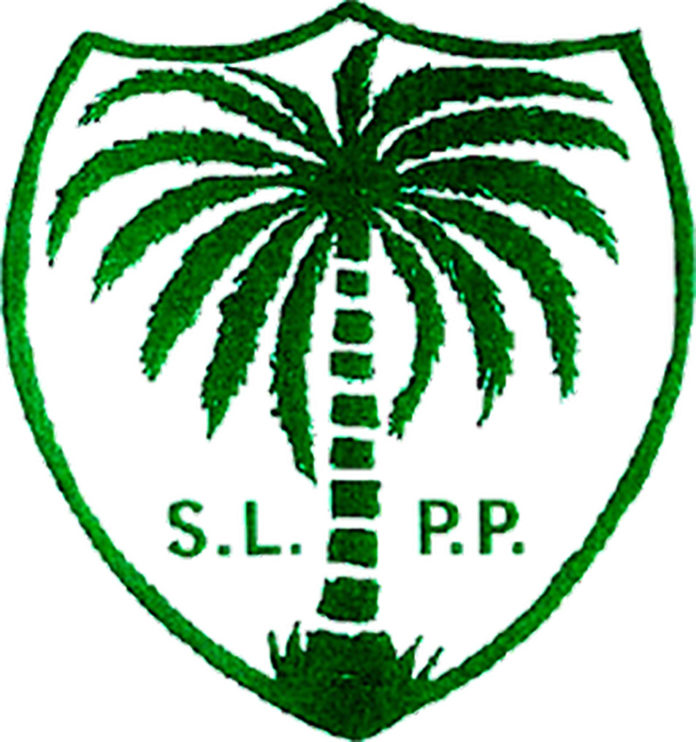









Anti-Corruption Commitments and Achievements: 25 Critical Questions on the SLPP’s 2018 Manifesto
By the Sierra Leone Live Team
We invite you to take part in an important evaluation of our government’s commitments and actions against corruption. The Sierra Leone People’s Party (SLPP) has made several pledges in its 2018 “New Direction” manifesto, many of which focused on the critical issue of combating corruption and enhancing accountability. As the stewards of our nation, it is our responsibility to assess the extent to which they have fulfilled these promises.
To aid in this review, we have created 25 yes-or-no questions based directly on the commitments made in the 2018 manifesto. These questions, designed to spark reflection and discussion, will provide a structured way to measure the government’s progress in these areas. By engaging with these questions, you will help create a comprehensive evaluation of our government’s efforts against corruption, giving us a clear picture of the successes and areas that may need more attention.
Anti-Corruption Act (ACC) and Constitution Review:
Manifesto Quote: “Review within the first 100 days the ACC Act to include the publication of all assets declaration forms of all public officials before they take office and upon leaving office.”
- Was the ACC Act reviewed within the first 100 days as pledged?
- Were the asset declaration forms of all public officials published before they took office?
- Were the asset declaration forms of all public officials published upon their departure from office?
Manifesto Quote: “Review the relevant provisions of the Constitution of Sierra Leone 1991 (including Section 119 in particular) and the ACC Act to strengthen the ACC’s investigative and prosecutorial mandate…”
- Was the 1991 Constitution of Sierra Leone reviewed, particularly Section 119, to strengthen the ACC’s mandate?
- Were the ACC’s investigative and prosecutorial mandates strengthened?
Systems and Framework Development:
Manifesto Quote: “Develop value systems and implement a robust merit and reward system in public and private life.”
- Was a robust merit and reward system developed and implemented in public and private life?
- Were value systems developed as promised?
Manifesto Quote: “Adopt a new framework to ensure accountability and transparency in the public sector…”
- Was a new framework adopted to enhance accountability and transparency in the public sector?
- Was the National Public Sector Transparency and Accountability Initiative (NAPSTAI) established?
Manifesto Quote: “Set up a system for planning, monitoring, and reporting on Development Results referred to as Results-Based Management (RBM) wherein development targets will be set at the start of each year…”
- Was a Results-Based Management (RBM) system set up?
- Were annual development targets set as part of RBM?
Corruption Categorization and Penalties:
Manifesto Quote: “Categorize corruption and measure it in terms of its economic costs to the nation such as low, medium, high, and very serious, in a manner that attracts harsher and stiffer penalties for more serious infractions.”
- Was corruption categorized as low, medium, high, or very serious?
- Were harsher penalties implemented for more serious infractions?
Implementation of Recommendations and Acts:
Manifesto Quote: “Ensure the full implementation of all recommendations in annual audits of the ASSL and of Ministries, departments, and Agencies.”
- Were all recommendations in the annual audits of the ASSL and of Ministries, Departments, and Agencies fully implemented?
Manifesto Quote: “Commit to adhering to and implementing the Access to Information Act to deepen the fight against corruption.”
- Was the Access to Information Act implemented to deepen the fight against corruption?
Support for CSOs and Inter-agency Cooperation:
Manifesto Quote: “Provide support to CSOs to enhance their capacity to prepare shadow reports on issues of transparency and corruption.”
- Were CSOs supported to enhance their capacity to prepare appropriate shadow reports?
Manifesto Quote: “Enhance inter-agency cooperation at the local and national government levels to prevent, detect, and punish corrupt practices.”
- Was inter-agency cooperation enhanced to prevent, detect, and punish corrupt practices?
Public Accountability and Conduct:
Manifesto Quote: “Improve social accountability, in which public officials and non-state actors will give an account of their stewardship.”
- Was social accountability improved with public officials and non-state actors giving accounts of their stewardship?
Manifesto Quote: “Popularize and enforce a comprehensive code of conduct for public officials to regulate their conduct whilst in public office.”
- Was a comprehensive code of conduct for public officials popularized and enforced?
Public Expenditure Tracking and Judicial Specialization:
Manifesto Quote: “Strengthen Public Expenditure Tracking Survey (PETS), District Budget Oversight (DBO) by Citizens.”
- Was the Public Expenditure Tracking Survey (PETS) strengthened?
- Was District Budget Oversight (DBO) by citizens enhanced?
Manifesto Quote: “Establish a special anti-corruption division in the High Court to promote judicial specialization and expeditious trial of corruption cases.”
- Was a special anti-corruption division established in the High Court?
- Were corruption cases tried more expeditiously because of the establishment of this division?
Leadership Commitment:
Manifesto Quote: “Commit the political leadership to lead in the fight against corruption.”
- Were political leaders committed to leading the fight against corruption?
- Was any concrete action taken by the leadership to fight corruption?
Your participation is crucial in this endeavor, and we express our deepest gratitude for your time and commitment. Ensuring accountability and fighting corruption requires a collective effort, and citizen engagement is the cornerstone of this fight. By answering these questions, you are directly contributing to the ongoing work of creating a more transparent, accountable, and corruption-free Sierra Leone. Thank you for taking an active role in shaping the future of our beloved nation. We look forward to your thoughtful and insightful responses.
Please take the Survey
https://sierraleonelive.com/survey/f8d4f4d7-887d-4175-b2da-88f81b1dd25f/

